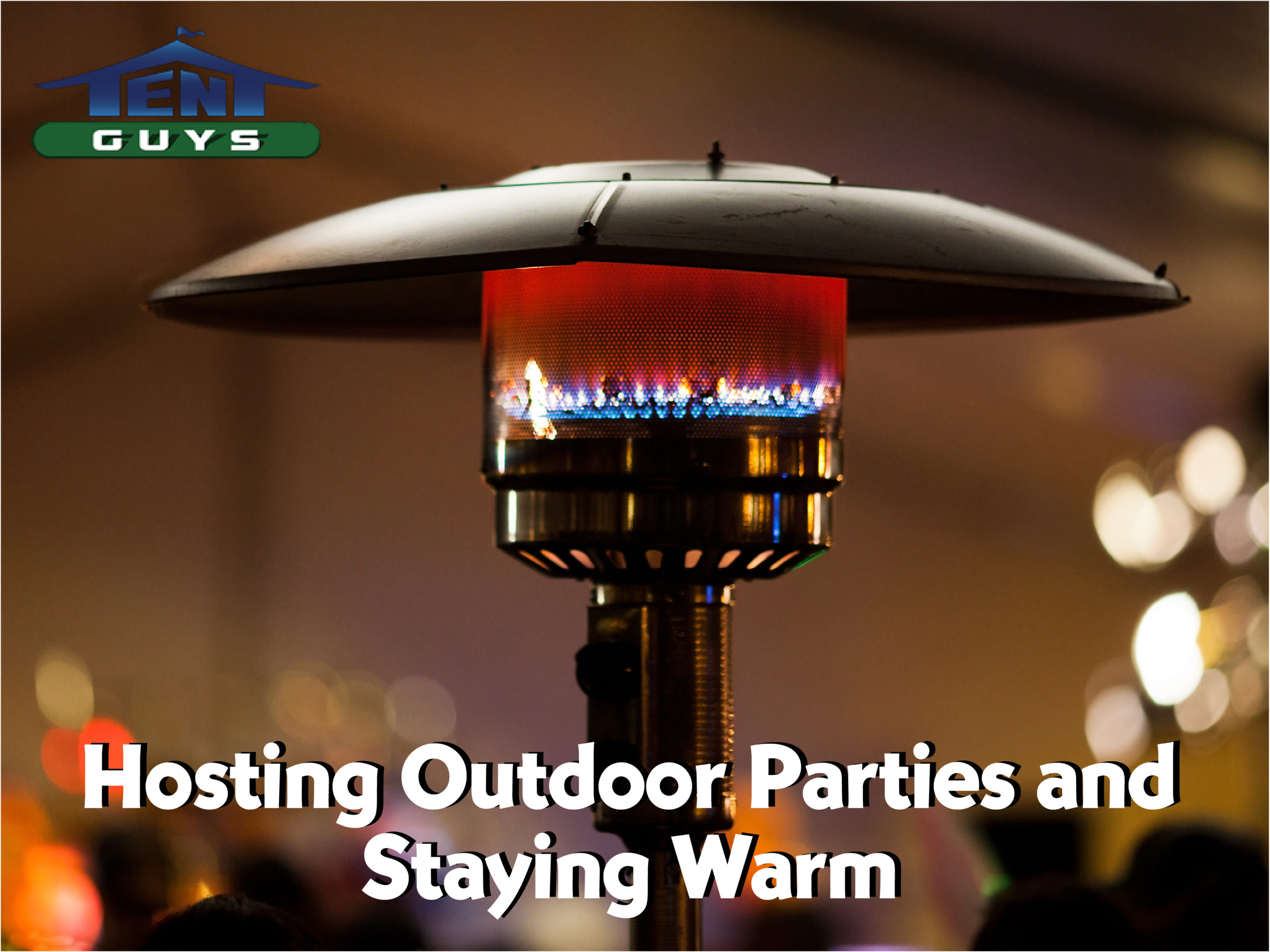Event Planning and Liability: Understanding Your Responsibilities
Event Planning and Liability: Understanding Your Responsibilities
Welcome To Our Blog
Looking for event rentals for your party or special event? Tent Guys has you covered with everything from tents to tableware. Whether you need a cozy space for a small gathering or a grand setup for a big bash, we have the right products and services for you. Browse our products or talk to our friendly staff to plan your perfect event today.
Event Rentals
Planning an event can be a fun and exciting process, but as you might guess, it can also involve a lot of hurdles and questions along the way.
One of the biggest questions you might not be thinking about, but should definitely be asking, is whether or not you are protected if something should happen.
Protection against accidents, mother nature, and the like is an important part of event planning and not something to be ignored. So let’s dive a bit deeper into the topic and discuss the nature of liability, how to tell whether or not you’re adequately covered, and how to make sure you get the coverage that you need.
Liability – What is it and Why Should I Care?

Liability is essentially the act of responsibility, especially as it pertains to the law. So for example, if you have your wedding in your parents’ backyard and your bridesmaid’s three-year-old daughter trips over a poorly placed outdoor speaker wire and breaks her arm, there is a potential that your parents could be held responsible. And if they are found to be responsible they or their insurance could be required to cover the cost of items, such as medical bills and lost wages. But how do we determine who is liable? This is where things can get tricky and why it’s best to ensure that you are covered from all angles BEFORE you put on an event.
Examining Your Existing Coverage
Depending on the nature of the event, you may already have some existing coverage available to you. For example, in the situation above where the couple decided they wanted to have the event at their parents’ home, chances are good that their parents carry personal liability insurance on their homeowner’s policy. This will cover any medical bills and court costs (if applicable) that may arise due to an incident that occurs on their property. However, the one important caveat to note here is that if it is determined that the negligence was intentional vs. accidental, the cost may no longer be covered. So to use the example above again, if your bridesmaid’s three-year-old daughter is pushed instead of accidentally tripping, your insurance may no longer cover the incident. In addition, there is a cap or limit to what most insurance policies will pay out, so be aware that you are on the line for the rest of the money if bills exceed the designated limit.
If you decide to have your event at a paid venue and have homeowners insurance, there is also a good chance that you will have coverage for your event through your policy. However, you’ll need to call your provider to determine exactly what is covered. For example, your policy may cover liability insurance up to a certain amount, but only for specified incidents. Oftentimes the liability associated with alcohol will not be covered. If you have a caterer that is serving your alcohol, ask them about their liability insurance and see if you are covered under their policy for the duration of the event.
 Anytime you are planning to have a large event on your property, it’s a smart idea to contact your insurance provider and review where your current limits are set so you can better determine whether it might make sense to temporarily raise them in order to cover any incidents that might occur.
Anytime you are planning to have a large event on your property, it’s a smart idea to contact your insurance provider and review where your current limits are set so you can better determine whether it might make sense to temporarily raise them in order to cover any incidents that might occur.
Other potential sources for coverage include your auto insurance policy and your credit cards. You’ll need to call the companies you use in order to find out the details of your existing policy or credit card. Keep in mind that perks will vary depending on which company or card you’re using. For example, if you use a Chase credit card to book your honeymoon and then end up needing to cancel due to unforeseen circumstances, they may cover up to $10,000 worth of the cost associated with your loss. In addition, if you lose baggage while traveling, some cards will reimburse you a daily amount of dollars to cover the cost of replacing clothing and other essentials.
Special Event Insurance
Sometimes you research all the current insurance already available to you and it still isn’t enough to cover the event. In this case, it might be worthwhile to consider special event insurance. Special event insurance, also sometimes called One Day Event Insurance, is a policy that you can purchase from your insurer that will cover all aspects of the event from start to finish on the day of the event. If, for example, you decide you want to have an outdoor wedding and hurricane Matthew determines your wedding day to be the perfect time to make landfall, all of your lost costs are covered for everything from the flowers to the cake. It also serves as coverage for any incidents or accidents that might arise during your event. So if your plan doesn’t provide enough coverage, this type of insurance is another way to ensure you’re protected.
Here are some additional examples of situations where special event insurance would potentially provide coverage:
- Serving in the Military – If you plan an event and the person of honor, such as the bride or groom, is called into active duty from the reserves, special event insurance will cover the costs associated with the date change or subsequent cancellation.
- Injury, Sickness, or Absence of a Key Participant – If one of the main participants in the event suffers injury, sickness, or death, insurance will cover the associated costs. This can also include if a major vendor doesn’t fulfill its obligations such as a florist not showing up on the day of your wedding to provide your purchased arrangements.
- Event Apparel – In the event of a wedding or other formal occasion, your dress and tuxedo are covered should damage or loss potentially occur.
- Honeymoon – If your wedding is canceled due to unforeseen circumstances such as illness or extreme weather, you may be covered for any additional costs that arise from cancellation or rescheduling.
While weddings are typically thought of when considering Special Event Insurance, it should be noted that this type of insurance is beneficial for any large gathering from anniversary parties to graduation celebrations. Your out-of-pocket cost will vary depending on the size of your event, the activities taking place, etc.; however, on average you can expect to pay around $125-$250 for this type of insurance. Large events involve all types of risk, and ensuring you’re covered from every angle is simply smart planning.
Damage Waivers
In addition to liability insurance, most venues/rental companies will offer their customers insurance in the form of a damage waiver. Damage waivers are just like they sound: you pay a fee for the waiver and, in exchange, you are provided coverage should any damage occur with regards to the rented property. Damage waivers are usually calculated as a percentage of the rental and can range from as low as 5% to as high as 25% depending on the business you work with. Companies will also determine whether they make the waiver optional or required. This is individual to each rental business so be sure to ask when you are shopping around.
Situations that are typically covered include items such as chipped plates, stained tablecloths, or broken glasses. Where you won’t be covered is in situations where there is excessive breakage, items are missing, or other signs of negligence are involved. Sometimes this type of damage can be covered under your homeowner’s policy, so check with your insurance company before investing the extra money.
Dealing with Permits
Understanding permits can be crucial if you’re planning a large outdoor event that will involve permission from the city, such as a festival or outdoor holiday party. There are several different types of permits depending on your needs:
Operation Permit – This permit is typically filed with the city if your event is taking place within the city limits. It is one of the most important permits to file, as it tells the city what your event is all about and assures that you are following the rules and ordinances.
Certificate of Compliance – If your event will have tents, and if those tents are potentially going to be on the road, you will need to file a certificate of compliance. This permit is for the Fire Department and essentially helps them to determine ways to navigate your event should an emergency occur that requires assistance.
Tent and Canopy Permit – As the name states, this permit involves tent and canopy safety. Just as there are codes for a safe festival, there are also codes for proper use of tents during a public event.
Noise Permit – If your event will have a certain level of noise associated with it, it’s always a good idea to consider a noise permit. That way, if there are any issues during the event with regards to noise, you know you’re covered. This permit is obtained through your city’s police department.
Various Event Permits – There are specific permits available for individual events such as parades, rallies, and block parties. It is always advised to check with the city regarding which permits you’ll need before moving forward with any large public or private event that utilizes city property.
For large public or private events, you may also be asked to fill out a formal application explaining the guidelines that are required to be followed in order to host an event within the city limits. These can range from making sure that food vendors are licensed and certified, to setting limits regarding the sale and consumption of alcohol.
We’re Here to Help
We understand that there is a lot that goes into planning an event and we are always here to help. Here at The Tent Guys, we are passionate about what we do and are dedicated to making sure you’re satisfied with every aspect of your experience. If you have any questions at all regarding tent rentals, event planning, and/or it’s associated liability, please don’t hesitate to stop by or contact us at your earliest convenience.





